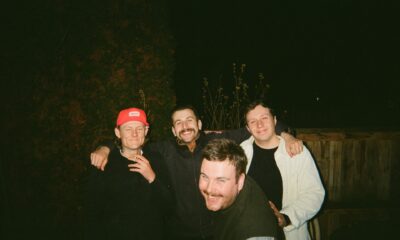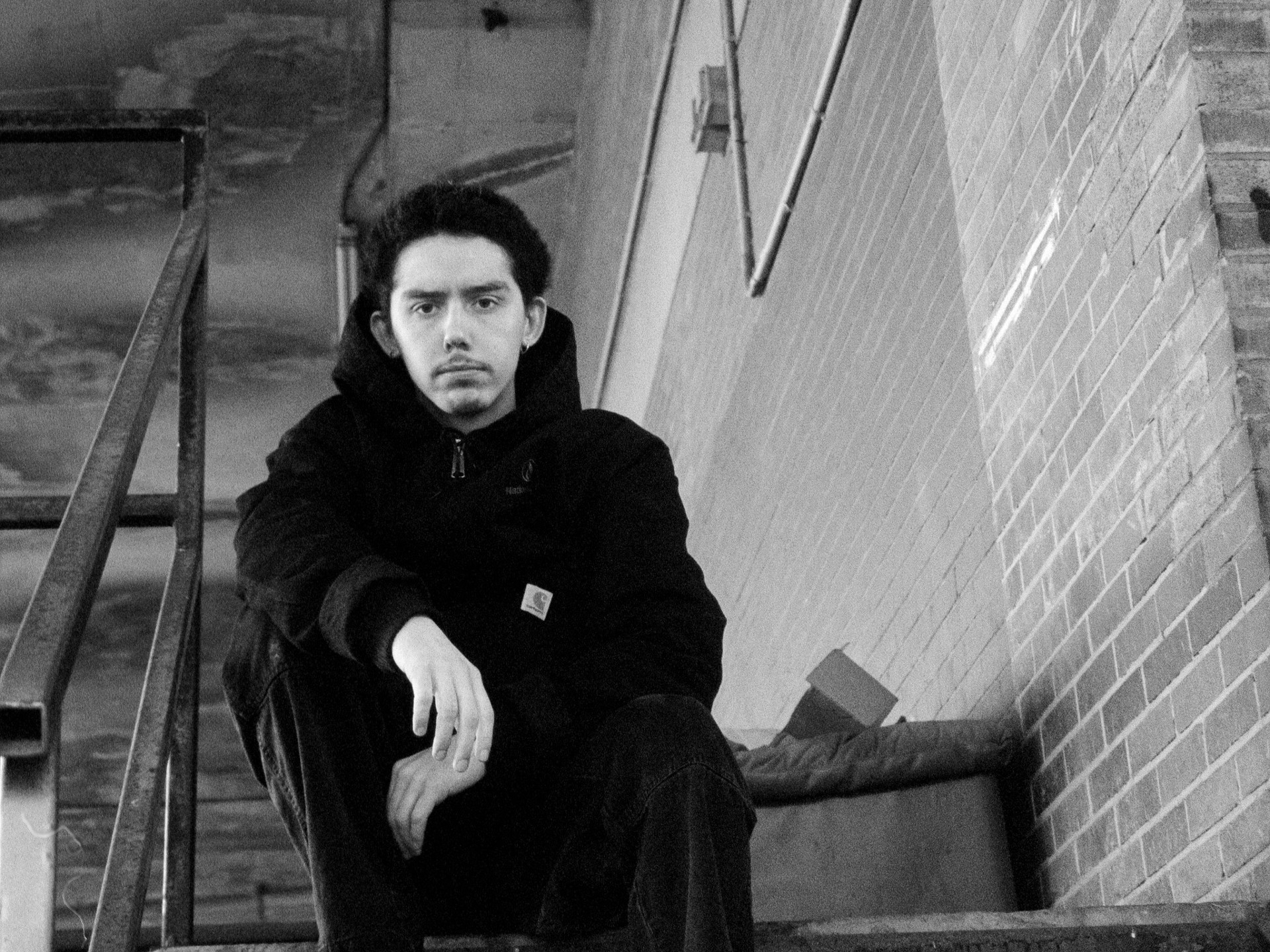Interviews
DUB TRIO Bassist STU BROOKS Discusses ‘The Shape of Dub To Come,’ Staying on Their Musical Path, and Guest Vocalists [w/ Audio]
Ahead of the April 26th release of The Shape of Dub to Come, the fifth album from Dub Trio, bassist Stuart Brooks took some time to chat about their new label, New Damage Records, instrumental material, and collaborations with vocalists King Buzzo and Troy Sanders.
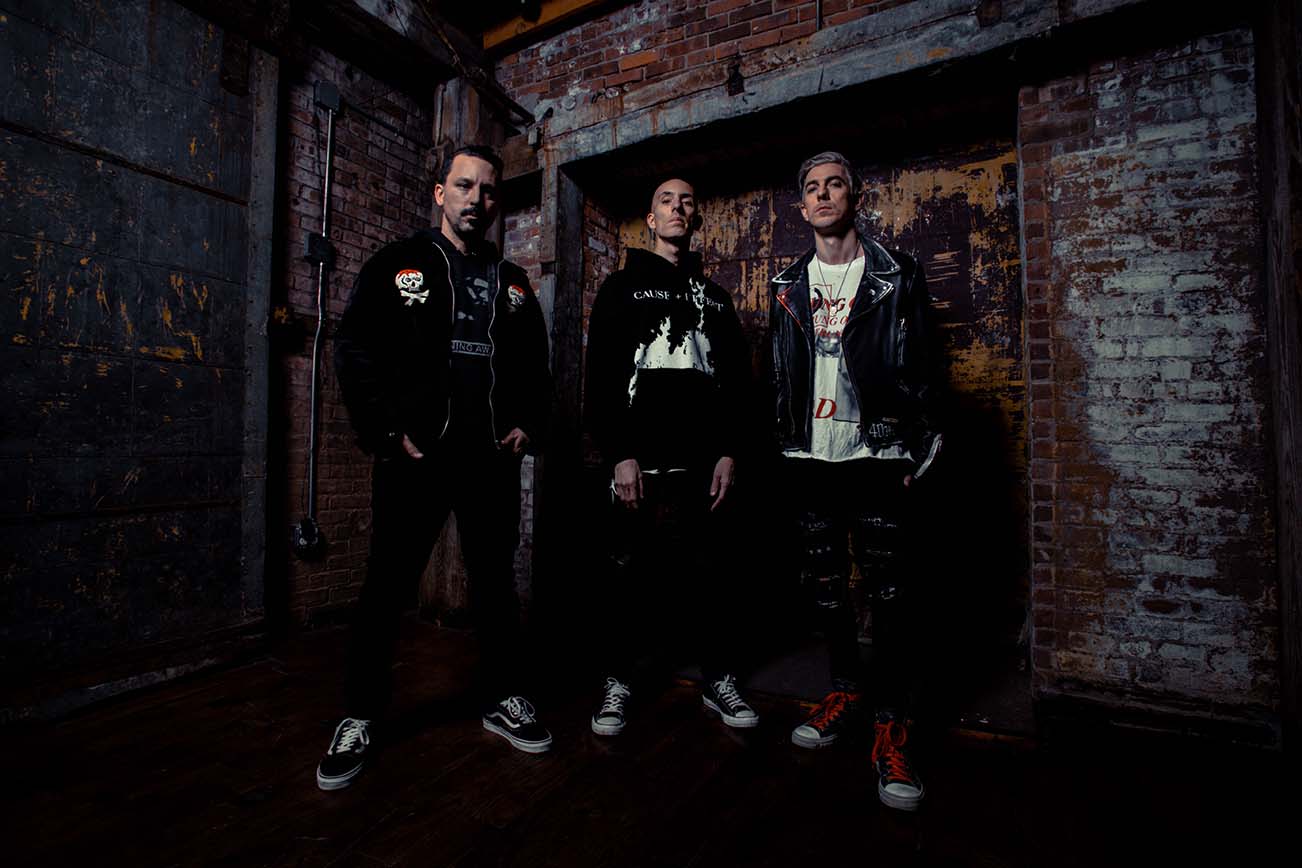
Dub Trio, newly signed to New Damage Records, is releasing their fifth full-length album, The Shape of Dub to Come, on April 26, 2019. (Physical and digital pre-orders are now available on DSPs RIGHT HERE.) Bassist Stu Brooks, guitarist DP Holmes, and drummer Joe Tomino have redefined the term “dub” under cover of metal, punk, alternative, and shoegaze. Specializing in almost exclusively instrumental material, the three-piece play not only their respective instruments, but operate some serious effects rigs, and double on keyboards and melodica too.
An homage to titles such as The Refused’s The Shape of Punk to Come and Ornette Coleman’s The Shape of Jazz to Come, the groove on The Shape of Dub To Come hinges on slower stoner-inspired sludge riffing. The Shape of Dub To Come features collaborations with vocalists King Buzzo (Melvins), Troy Sanders (Mastodon) and Meshell Ndgeocello, offering a collection of the most material Dub Trio has ever released with vocals on an album to date.
Dub Trio bassist Stu Brooks grew up in Toronto. We start off discussing how little he manages to get back here now.
And then eight years went by
Stu Brooks: It sucks because I am so connected to Toronto. And I just want more. I’ve wanted to be more Canadian all this time with Dub Trio, and finally being signed to Dine Alone / New Damage I’m getting that wish. And hopefully, we’ll do some shows in Southern Ontario.
There’s a lot of interesting bands signing to either Dine Alone or New Damage.
Brooks: I know. The hard rock stuff that they’re doing is awesome. It makes me nostalgic for real music.
Check out the video for the guys’ song “Fought The Line” featuring Troy Sanders.
Well what do you define as real music. I mean I consider this fifth album that you’ve put out to be pretty interesting. It’s all over the map musically. There are lots of different styles.
Brooks: Yeah. What do I consider real music? I don’t know… something that is visceral and can be experiential. That after you’ve listened to it, you’re affected by it. You come out transformed in some way. Even just a little bit, you know? And whether it be emotionally (or like in our case live), it would be a physical experience too. I think just the vibrations. With our record, we always have sort of a myriad of styles that we’d like to try to play, but we don’t really have any preconceived notion.
It’s more like we just write a bunch of tunes and pick the ones we like for the record. We have some extra stuff to put on the backburner. But we wanted to do some Dub Trio style reggae and dub, but then we also wanted to go a little heavier as well. But we didn’t do as much of the speedy kind of metal. We did a little more sludgy kind of stuff. Which actually is really effective when you want to apply dub to that because there’s a lot more space for the dub aspects to pop out.
What I mean by dub is the process – not necessarily like reggae style but with dub being usually synonymous with reggae. It’s an engineer’s realm traditionally. An engineer would strip back the rhythm tracks and turn up the bass and fly reverb over the drums or delays or spring reverbs. And what we’re doing is basically applying that concept process to (in this case) some sludgier metal.
Right! And appropriate that you went to King Buzzo and Troy Sanders given that they play pretty sludgy stuff.
Brooks: Yeah, we were definitely really influenced. Like sometime around 2007 where we would play “The Wolf is Loose” in soundchecks and stuff. We actually recorded “The Wolf is Loose” on a live record, but then we didn’t put it on the record. But it was just at that time I had met Troy. I met Troy’s wife at a Clutch concert when we were on tour with Clutch. And we hit it off. And then I invited them all to a Peeping Tom show the next time we were in Atlanta. And that’s when I met Troy. They came out, and he brought the Mastodon guys, and we had an epic hang and stayed in touch ever since.
And then around 2014 or 2015, we had this song, and I sent it over to Troy, and he recorded it. So we’ve been sitting on this song for about two years or so, and finally, it’s coming out in 2019. And then with Buzzo the connection there was more through the Ipecac connection. I’ve seen them play several times and we have friends in common. And then finally we got to meet. I didn’t meet him until after he recorded it (“World of Inconvenience”) which was kind of cool. We just went and did a round of 18 holes right after we did the music video for the song. And we spent like an hour at a studio filming his part. And then went and played 18 holes. He is a really good golfer. Really good.
The album The Shape of Dub to Come drops on April 26th, 2019, via New Damage Records.
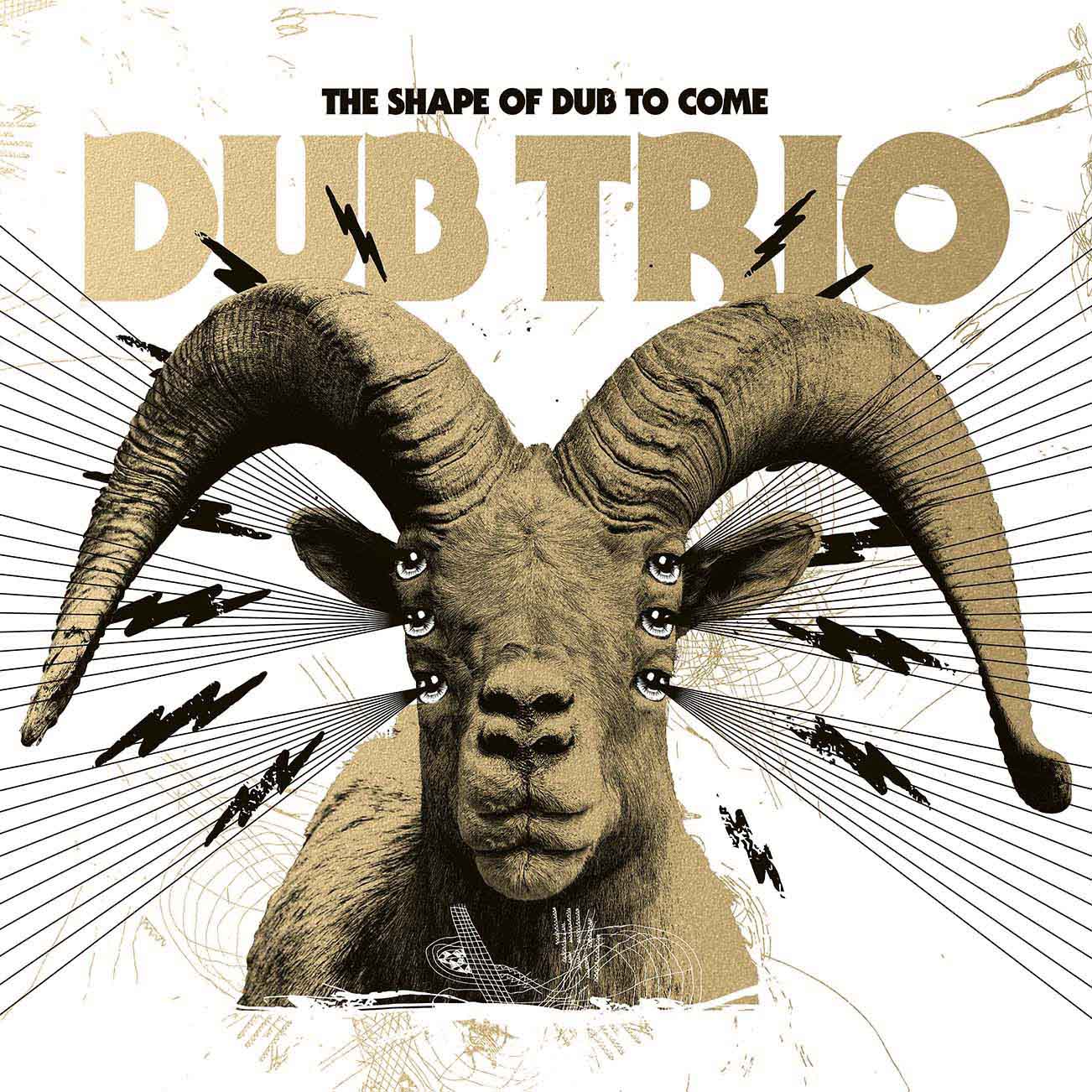
And tell me a little bit about Meshell how you got her involved?
Brooks: Meshell Ndegeocello? She’s one of my biggest heroes. When I was a kid, I really got into one of her records called Plantation Lullabies. She was like a bass hero. And I met her at Mark Guiliana’s wedding. He’s a drummer. He’s in the Blackstar band (David Bowie), and he’s amazing. You should look him up. And then some at the reception for their wedding. The whole time I got to chat with her, and I eventually sent her all the Dub Trio stuff, and she replied after she got it that she wanted us to do some remixes for her record.
So, we did one remix for her album, and then the other one would be for our record, and that one was “Forget My Name.” So that’s an actual Meshell tune we cut up and destroyed it. And don’t quote me on that but her version was more like afrobeat. We cleared all the music off the track, kept some of her vocals and chopped it up and made a dub reggae version. And that was in 2014. That was a long time ago.
This album really spirals out towards the end. And I mean that in a good way. It goes from something very heavy and sludgy into something else. I mean there’s dub, but it trances out on “Computery” and “Sati” almost like a Tangerine Dream style.
Brooks: Yeah. When I made the sequence of the order of the songs I considered the fact that we’d have it on vinyl and so after four songs you’d flip to the B side, and that’s where you get “Life Signs.”
The post-rock song.
Brooks: Yeah. So once you flip it, it’s kind of changes scenery altogether. It’s like turning into a new chapter, you know? It’s pretty clear – like it’s a different sound. It’s a new introduction to another chapter and then in that one really took inspiration from like Trent Reznor and Atticus Ross and artists like Holy Other for example. And that’s my wife singing on there. It’s pretty sweet that her voice is in there.
Then we go into a more mellow direction. Just to go back to a “Life Signs,” we always sort of each record we always had like a wild-card kind of song. One that’s different from the rest. Like we in the past we did “Ends Justify the Means” which is sort of dubstep – kind of early dubstep… Scorn, Kind of? You know Scorn?
I do know Scorn. I like Scorn. That’s an Earache band, isn’t it? The record label?
Brooks: I think. Yeah. Mick Harris, right? Awesome. We did a little tour with him, and kind of got really influenced by him. So that track like it just to stand out from the record IV. for that. And we had another one like that on where we did a prepared piano piece. So it’s just like a couple songs that make the album a little bit more of a journey you know a little far out there. It takes you off the plot just a little bit to make it a little more interesting. Then we went into a little bit more of a Pinback influence. And then “Computery” was sort of like a just of help me out here because I’m sort of losing my train of thought.
After partnering up with King Buzzo, the band produced a “World Of Inconvenience.”
I don’t know… “Computery” is kind of trancey. I heard a little bit of ambient Reznor-ish stuff in there like it’s cool I like the way that the last 10 minutes of the album just sort of fades out to silence. It’s an interesting way to end an album.
Brooks: Yeah, that last one is sort of like a Raymond Scott kind of electronic homage. Or Philip Glass. You know I guess?
A little bit. A little bit Eno.
Brooks: Yeah for sure, for sure. And I definitely like took influence from one moment in there where it’s just straight up a Tim Lefebvre rip off. Well, I took the same baseline but use this effect that he uses, and he’s quite well known for using it. It was one of my favorite parts of the record. Right before the drop – like the last drop. And it goes into this ring modulator kind of effect. Anyway, I should shout him out.
I kind of feel like your band is like this hidden weapon. You’ve been around for almost 20 years you’ve toured with some big names and some very different names, and yet you sort of seem to stay under the radar, and I’m confused by that because you’re three talented guys.
Brooks: Thanks. You know we’ve always been just working musicians, so it’s not like our only band is Dub Trio. And the band started out as a passion project. Kind of like a side project. It was a jam. We were just jamming, you know, and then Lucas Cooper from ROIR took notice and decided to make a record with us. There’s a bit of luck there. Like when we sort of garnered a following in France, and then we hit the road pretty heavily. Did Europe a lot.
And then with Mike Patton our audience and global reach kind of expanded. I think we can owe it to him for that because of his cult following. There are just a few choices we made that kind of help expand our audience. But at the same time or each individual in the group is like spreading themselves out because that’s how you need to survive in the music industry. You sort of have your hands in different projects and so the focus on the band kind of went by the wayside once some other streams of income came in.
Also, we were doing two-year cycles of albums, and we’re on the road like nine months at a time doing support gigs and supporting other bands. I guess maybe we’re not that accessible to the mainstream, but that’s where I think the integrity of our music falls. We’ve never really compromised. We just did what we love, you know? Maybe that’s why? Because we’re not really going for something that’s totally accessible for the masses.
Episode one of “The Making of The Shape of Dub to Come.”
I think that you’re involved with other stuff too. Like you’d mentioned. So you know if you get the opportunity to go out on the road with Peeping Tom for a couple of years why would you say no to that?
Brooks: Right. It kind of expands our audience. And a bit of our musical interests too. We study music, so just doing one thing would be very boring. But having diversity is challenging. Then at some point, Joe and Dave moved to different cities, so that kind of gave us a little bit of a break as well, so we were together as a rhythm section but playing in Matisyahu, Peeping Tom, and different bands. But the one different thing was that we weren’t returning to Brooklyn altogether. Just me pulling it down.
Now I’m not a musician so I’m not the type of guy who can pick into the minutiae of what makes a good bass player, but you and Pancho Tomaselli from Philm are two of my favorite players because you can play almost anything and you’re not afraid to jump into different sounds.
Brooks: Did you say Pancho Tomaselli?
Yeah.
Brooks: That’s an old homie.
I figured. And I think he went to Berkeley as well.
Brooks: Okay, he engineered and co-produced the record that I did with… okay, let me just give you a little backstory. There’s a band that I was in with Dave Holmes the guitar player from Dub Trio and his brother Mark Holmes called Actual Proof. And that was a Boston-based band around Berkeley, and my wife was the front of house engineer at the time she was just my good friend.
And then we move down to New York and our drummer, Deantoni Parks at the time, moved on. He ended up playing with The Mars Volta. And then we auditioned the drummer, and that was Joe Tomino. And then we were in Actual Proof with Joe for a while, and then we split off and started Dub Trio as just a rhythm section. But if you go back to 1998/99, Pancho Tomaselli produced that record.
This is an “Illegal Dub,” so watch at your own risk.
No way. I didn’t know that.
Brooks: With Deantoni on drums. Then I recently ran into him when I was working at SNL. And he walked by, and somebody said “Stu” and said hello. And he was with somebody I know. And we had like this amazing embrace. It was cool. It was like 20 years later. Yeah. He’s a great bass player. He’s got a good article in the debut of Bass Magazine that just came out yesterday.
All right cool. I find you’re playing similar. Just some the way that you pick in some of that like the stuff that you are interested in playing.
Brooks: Yeah. He’s sick! He actually played in Tower of Power for a short time. Yeah, and I played with SNL this year with Lenny Pickett who was from Tower of Power. We also have like our metal side. It’s all over the place I guess.
So talk a little bit about how you Dave and Joe approach each album. They’re all similar, but I find that you’re sort of progressing into heavier realms with each passing album that comes out.
Brooks: We kind of just write music based on what we’re interested in at the time given that we are using guitars and basses and drums. You know, in other situations we use other instruments, but we have these tools. There are aspects to the older Dub Trio that I love, and so it’s like let’s do something that’s kind of like old school Dub Trio, and then we’ll go in and do that and then it’ll be like I want to do something of like Bark Market or something like that. So we’ll listen to it. We’ll play an homage.
And there’s ways of writing tunes where it could come from thin air, or it could come from just a quick conversation like “Let’s do something like Pinback. Or hey maybe this “Life Signs” track, maybe this could go in the Dub Trio record. That would be cool.” So it’s not that much intention sometimes, but other times it would be totally intentional. Like “oh this is for Dub Trio.” We wrote probably about twelve songs. And chose eight or nine. And the last one “Sati” was just part of “Computery,” but we made that like our Shavasana. We’ve always sort of done that… have our closing track that was extended…
The transcendental moment.
Brooks: Yeah yeah definitely. Like a Shavasana.
Episode two of “The Making of The Shape of Dub to Come.”
Can you talk a little bit about how you three originally met and started to make music together.
Brooks: So, through Actual Proof, like in ‘97 I met Dave Holmes in Boston, and we started that band called Actual Proof. Which was like a Boston type of scene band. And then when we moved to New York we lost Deantoni – he ended up going with another band – I think the Mars Volta or something at the time. But whenever we auditioned one drummer, and that was Joe.
And I was the first time you saw him play right? When you did the audition?
Brooks: Personally, yeah. I think Dave saw him playing one other time like at the Izzy Bar in New York. And I met him in the audition and that night after the audition Joe, and I went and had drinks. I’ve been sober for 19 years, but that night was more than 19 years ago. I’ve been sober for 18 years so 19 years ago we would have had drinks after and we just became like instant brothers. It was very obvious that we were connected. And who would know that we be still playing together 19 years later?
I feel like The Shape Of Dub To Come is your album that showcases your band with vocalists. To me, this is the first time you’ve really gone forward with vocals over top of your style, and I find it interesting.
Brooks: Thank you. Yeah. I’m very grateful to these singers for their contributions.
Will that put any pressure on you to have audio tracks while you’re playing live? Will you bring a vocalist along so that you can deliver some of these?
Brooks: I’m not sure what you mean.
When you’re performing live, and you play “World of Inconvenience,” will it be instrumental or someone going to sing?
Brooks: We’re actually going to release the instrumental. It was recorded as an instrumental. So, yeah, we’ll play it live instrumentally. I love it that way round. Same with “No flag” and “Not Alone.” And “Fought the Line.” They were all instrumentals.
And the inevitable Canada question. Will you be able to get up here to play before the end of the calendar year 2019?
Brooks: 100%. That’s a priority. Like I said, I want Dub Trio to be more Canadian. We are 2/3rds, but we’ve just been down south of the border all these years.
-

 Alternative/Rock1 day ago
Alternative/Rock1 day agoThe V13 Fix #010 w/ High on Fire, NOFX, My Dying Bride and more
-

 Music53 mins ago
Music53 mins agoTake That (w/Olly Murs) Kick Off Four Night Leeds Stint with Hit-Laden Spectacular [Photos]
-

 Hardcore/Punk1 week ago
Hardcore/Punk1 week agoHastings Beat Punks Kid Kapichi Vent Their Frustrations at Leeds Beckett University [Photos]
-

 Alternative/Rock7 days ago
Alternative/Rock7 days agoA Rejuvenated Dream State are ‘Still Dreaming’ as They Bounce Into Manchester YES [Photos]
-

 Culture1 week ago
Culture1 week agoCirque Du Soleil OVO Takes Leeds Fans on a Unique, Unforgettable Journey [Photos]
-

 Music2 days ago
Music2 days agoReclusive Producer Stumbleine Premieres Beat-Driven New Single “Cinderhaze”
-

 Culture3 days ago
Culture3 days agoDan Carter & George Miller Chat Foodinati Live, Heavy Metal Charities and Pre-Gig Meals
-
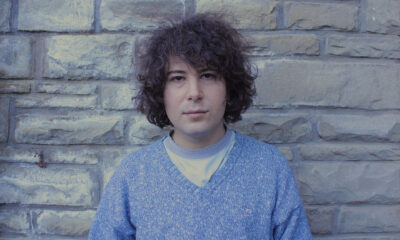
 Indie1 week ago
Indie1 week agoMichele Ducci Premieres Bouncy New Single “You Lay the Path by Walking on it”





